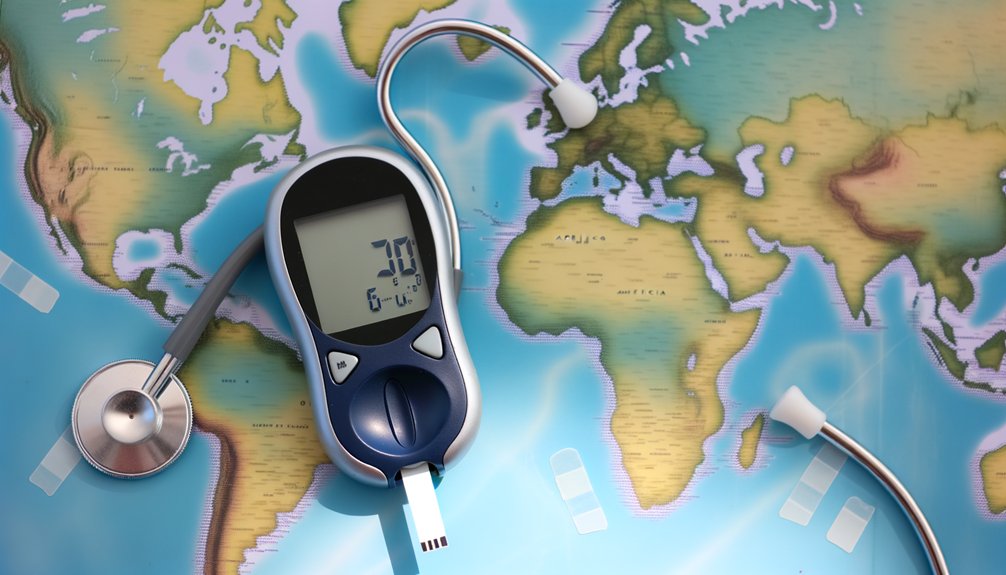The WHO Diabetes Report paints a sobering picture of diabetes affecting over 800 million adults around the globe. With rising numbers, particularly in low-income regions, the emotional toll is undeniable. Many remain untreated, straining healthcare systems. Yet, there’s hope. Simple changes like a healthier diet and more activity can make a big difference. Communities can support one another, fostering awareness and prevention. It’s a journey worth taking, and there’s much more to explore about it.
As the sun rises over bustling cities and quiet towns alike, the reality of diabetes casts a long shadow over the lives of millions. Diabetes, a condition affecting over 800 million adults worldwide, has surged dramatically since 1990. What once affected 7% of adults now impacts around 14%, with projections indicating that by 2050, approximately 853 million individuals may be living with this chronic illness. This staggering rise is especially pronounced in low- and middle-income countries, where access to treatment remains a significant challenge.
In regions like Africa, the forecast is alarming. The number of diabetes cases is expected to increase by 142% by 2050, underscoring the urgent need for intervention. Sadly, many remain undiagnosed; around 240 million people are unaware they have diabetes. This lack of awareness is particularly concerning, as nearly 59% of adults over 30 with diabetes were untreated in 2022. This situation leads to increased morbidity and mortality, placing an immense strain on healthcare systems that are already struggling. Almost 450 million adults remain untreated in 2022, highlighting the critical need for improved healthcare access. Moreover, the increasing rates of overweight and obesity are major risk factors contributing to the rising prevalence of diabetes.
The alarming rise of diabetes in Africa calls for urgent intervention and heightened awareness to combat the silent epidemic.
However, hope is not lost. The World Health Organization (WHO) is advocating for extensive strategies to combat this rising tide. By promoting healthier diets and encouraging physical activity, they aim to reduce the incidence of diabetes. Lifestyle interventions through structured programs have proven effective in preventing or delaying the onset of type 2 diabetes.
Simple lifestyle changes can make a significant difference, and awareness campaigns can help educate communities about this preventable condition. Implementing better health systems for diagnosis and treatment is essential, especially in areas where access to care is limited.
The path ahead may seem intimidating, but with collective action, communities can rise to the challenge. By addressing the gaps in healthcare and supporting each other, they can work towards a future where diabetes no longer casts its shadow.
Each small step toward prevention and awareness can light the way for a healthier tomorrow. Together, they can turn the tide against diabetes and reclaim the joy of living.
